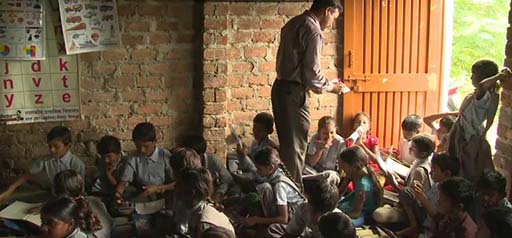2 Multiple activities in the classroom
Multiple activities can be an effective way to manage large classes, and classes of mixed ages and mixed abilities. It is also an opportunity for you to separate specific groups for a more focused talking, reading or writing session with you, while the other groups are doing other tasks. In this way, every student will have focused reading with you at some time during the week. When you read with a small group, you have an opportunity to assess individual reading development.
It is important to think about what you will be doing while students are busy with their work. You might go around to each group and monitor its progress during the lesson. When you begin group work, it is often useful to ensure that students are doing the task, but you should also encourage students to try to work independently – even if only for ten minutes. This will build their independent learning skills.
Remember to plan for contingencies. What might go wrong or get in the way of your plan? Students may not be used to working in this way, or they may not understand your instructions. You should be ready to reorganise your activity or rephrase your instructions.
Give students clear instructions so they understand what is required in terms of their behaviour and their outputs. Repeat instructions and encourage students to repeat them to confirm their understanding. Recognise that you have opportunities to practise and speak English for yourself in this role.
Initially you may have to plan this in detail, including strategies for managing the class and groups. Over time, you will find that activities become easier to organise as students get used to the routines.
When you implement the plan you developed in Activities 1 and 2, try to answer these questions so you can learn from the outcome and apply your learning to future lessons:
- What did you enjoy most? Why?
- What did the students enjoy?
- What could have been planned better?
- To what extent did the activities give students opportunities to practise English?
- How did you plan variety in the activities to cater to the needs of different students?
- What opportunities were there for you to practise English yourself?
- What would you do differently next time?

1 One story, many activities
